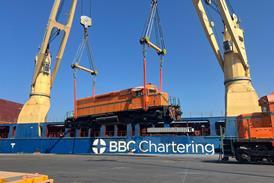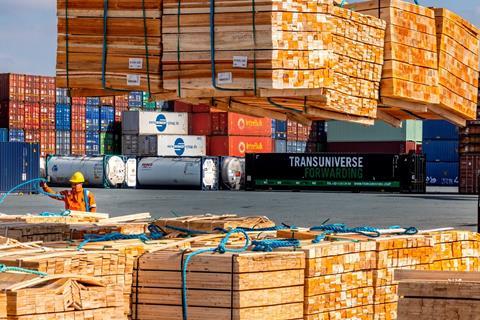Over the first six months of 2024, North Sea Port transhipped 33.4 million tonnes of seaborne cargo with volumes holding steady relative to the same period of 2023.
The port said that general cargo transhipment (including breakbulk) rose by 4.1 percent to 5.2 million tonnes, thanks to increased volumes of cellulose. Ro-ro throughput remained steady at 1.9 million tonnes.
As a result of EU sanctions, trade with Russia fell by a further 17 percent during the first six months of the year. Russia is now North Sea Port’s 10th biggest trading partner, whereas two years ago it still held the top spot. The UK is currently the port’s most important trading partner, followed by the USA and Sweden.
“For Western European countries, growth is looking relatively limited for this year. We cautiously predict a slight growth of two percent over 2024,” said the port.
The gateways will focus on sustainability, the energy transition, digitalisation, and the European transport network. They will work together to develop best practices in the energy management sector, environmental management, as well as sustainable port management.

















